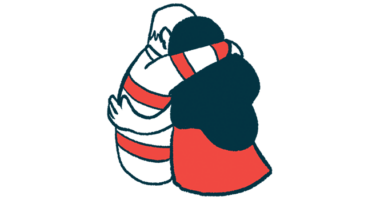Depression more likely for primary vs. secondary caregivers in PWS
Most caregivers feel 'overloaded' by patient's care needs: Study

Providing needed care for someone with Prader-Willi syndrome (PWS) may make people — particularly those who serve as primary caregivers — more likely to experience depression and feel overloaded, a small study from Argentina suggests.
“Caring for people with PWS can have a significant effect on the mental health, burden and quality of life of caregivers, with a greater impact among primary caregivers compared with the other … relatives,” the researchers wrote.
The burden of care was found to take a much greater toll overall on primary versus secondary or other caregivers, the team noted, with “61% of the main caregivers [showing] high levels of overload, compared with 29% of the other relatives.”
Moreover, the researchers found that, “concerning depression, 40% of primary caregivers related possible or probable cases of depression compared with non-primary caregivers [at] 13%.”
The study, “Mental health impact on primary and secondary Prader–Willi syndrome caregivers,” was published as a short report in the journal Child: care, health, and development.
Fewer secondary caregivers than primary carers found to have depression
Looking after people with PWS can be challenging because the rare genetic disease affects many aspects of daily living, from eating and sleeping to controlling emotions. In most cases, patients are unable to care for themselves, and thus require lifelong support.
“Rare diseases can have an impact on the quality of life of patients and caregivers, not only due to the disease and care itself but also to the alteration of family dynamics,” the researchers wrote.
Now, a team of scientists from the SPINE Foundation, in Buenos Aires, sought to understand whether primary caregivers — those who assume the main responsibility for a PWS patient’s care — experience greater challenges than do secondary or other caregivers. To that end, the team looked at 33 families of patients with a genetic diagnosis of PWS. The mean age among the patients was 22.8 years.
Among a total of 69 caregivers, 31 or 45% were mothers and 19 or 28% were fathers. Another 19 caregivers, also 28% of the total, were other family members, including siblings and one brother-in-law, or tutors.
Altogether, there were 38 primary caregivers and 31 secondary caregivers, or caregivers other than the primary ones. The mean age of the caregivers overall was 49.9 years.
There were no differences found between the two groups in symptoms of anxiety and depression when using the Hospital Anxiety and Depression Scale (HADS), where higher scores indicate more severe symptoms.
The researchers then defined three ranges for both the anxiety and the depression parts of the scale. Scores in the range of 0-7 points were defined as non-cases, while those of 8-10 points were defined as doubtful cases. More than 11 points on the scale were defined as cases.
The proportion of caregivers who fell into each range was not statistically different when looking at anxiety, although more primary than secondary caregivers — 32% versus 19% — reported a higher possibility of anxiety.
However, when looking at depression, it was significantly less common for primary caregivers than for secondary caregivers to be a non-case (55% vs. 81%).
Primary caregiver ‘feels responsible for the entire family dynamics’
Caregivers also were assessed with the brief version of the World Health Organization Quality of Life questionnaire, known as WHOQOL-BREF. This questionnaire addresses four life quality domains: physical health, psychological health, social relationships, and environment. Higher scores indicate better quality of life.
While primary caregivers had lower scores across all four domains, only psychological health was significantly poorer for primary caregivers than for secondary caregivers (53 vs. 61.2 points).
No significant differences were observed between primary and secondary caregivers in another instrument of quality of life designed for caregivers of pediatric patients, or in how primary or secondary caregivers perceived family functioning.
However, primary caregivers reported a higher burden on the Zarit Burden Interview, a tool whose scores range from 22 to 110 points, with higher scores indicating more intense burden.
Caring for people with PWS might exert a detrimental effect on the mental health, burden and quality of life of caregivers, with a greater impact among primary caregivers.
Primary caregivers scored an average of 9.4 points higher compared with secondary caregivers (60.5 vs. 51.1 points). Moreover, about twice as many primary caregivers reported intense burden, defined as a score of 56 points or more (61% vs. 29%).
“The caregiver directly responsible for the patient is the one who usually … feels responsible for the entire family dynamics,” the researchers wrote.
The team concluded that “caring for people with PWS might exert a detrimental effect on the mental health, burden and quality of life of caregivers, with a greater impact among primary caregivers.”







